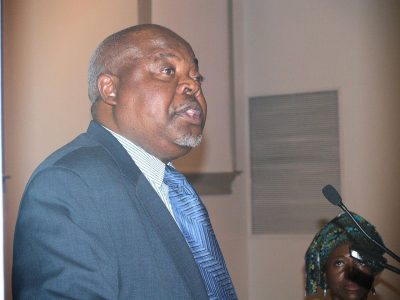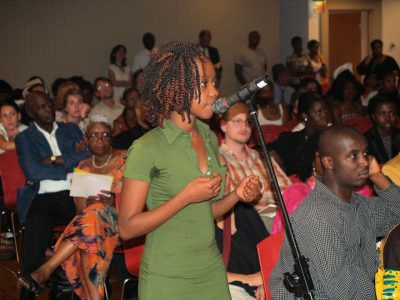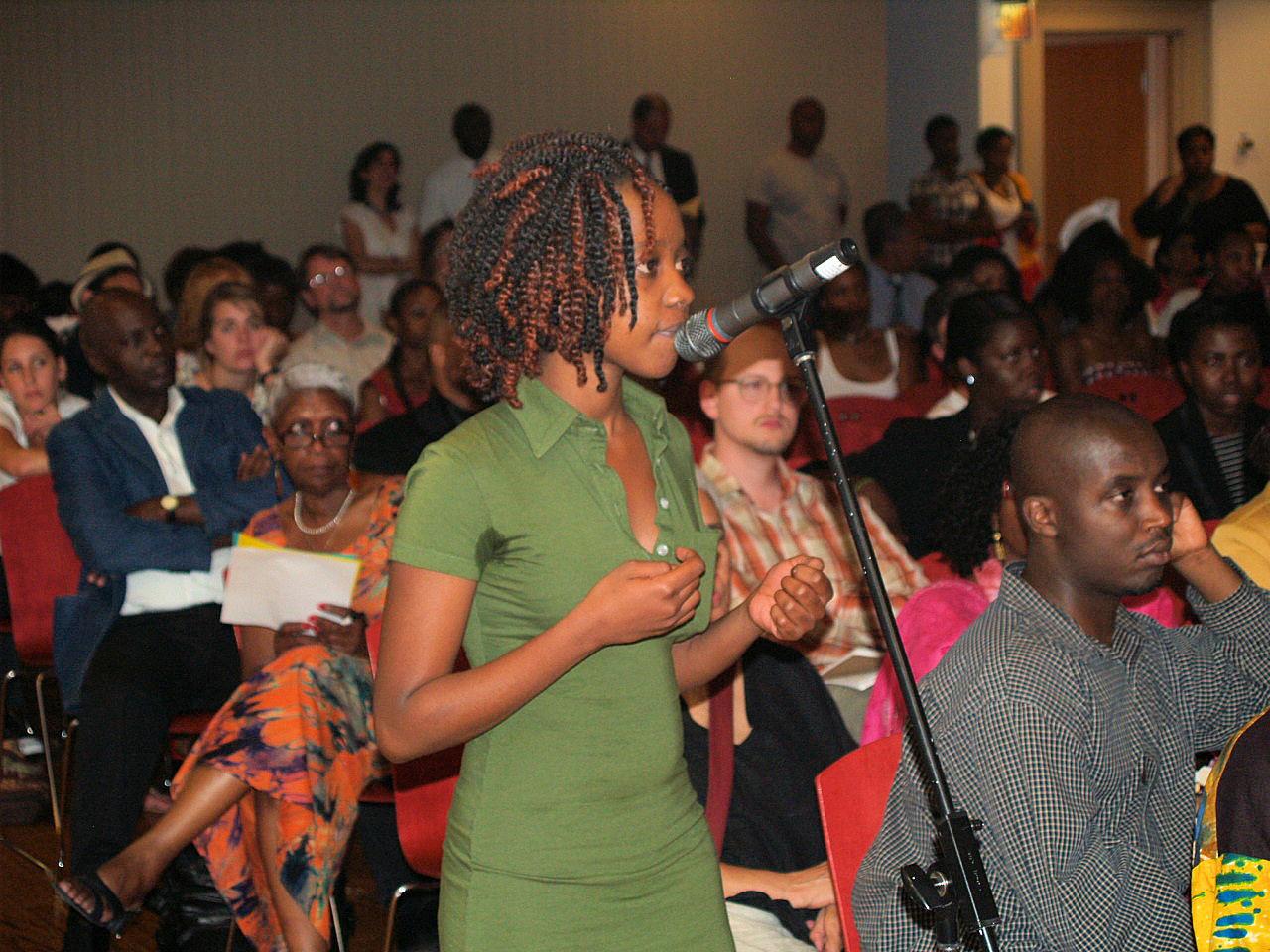 Foreign Policy In Focuscommemorated 50 years of independence for the Democratic Republic of Congo (DRC) this week, along with Friends of the Congo, Congo Global Action, Africa Action, Africa Faith & Justice Network, TransAfrica Forum, and WPFW 89.3 FM in Washington DC. For many of us, the event organizers and most of those in attendance feel that true independence for DRC has yet to be realized.
Foreign Policy In Focuscommemorated 50 years of independence for the Democratic Republic of Congo (DRC) this week, along with Friends of the Congo, Congo Global Action, Africa Action, Africa Faith & Justice Network, TransAfrica Forum, and WPFW 89.3 FM in Washington DC. For many of us, the event organizers and most of those in attendance feel that true independence for DRC has yet to be realized.
The DRC won a hard-fought independence from direct Belgian colonialism in June of 1960, led by Patrice Lumumba, who was subsequently elected Prime Minister of the Congo. It is widely accepted that Belgium, the CIA, and other Western forces conspired to, and succeeded in assassinating Lumumba. This travesty was also a recurring theme within yesterday’s event.
Held at the Public Welfare Foundation’s True Reformer Building, this day-long conference attracted over 150 people, many of them Congolese. We began by screening 20 minutes of three films; Memories of Lumumba by Lubangi Muniania, The Street Children of Kinshasa by Gilbert Mulamba, and Apocalypse Africa by Del Walters. I highly recommend that you click the link for Apocalypse Africa to view its trailer.
The films were able to dispel a racist notion promoted by Western media; that Africans are a naturally brutal and violent people, particularly toward one another. Once one understands that it was Belgian colonial rule that introduced the chopping off of hands and raping of women as methods of subjugation, then today’s realities in the Congo are better understood. Once one learns that it was U.S. government policy to saturate “Black Africa with weapons” to deliberately foster violent internal conflict, explanations about the current state of Africa become much clearer.
 It became very evident that people are very frustrated about, and anxious to find solutions to the dire situation in DRC. We were able to get into a more full discussion about what can be done during a panel moderated by Del Walters and IPS’s Emira Woods.
It became very evident that people are very frustrated about, and anxious to find solutions to the dire situation in DRC. We were able to get into a more full discussion about what can be done during a panel moderated by Del Walters and IPS’s Emira Woods.
With a 14-year conflict over mineral resources that has claimed six million lives and hundreds of thousands of women raped, a discussion about how to actually insure the security and sovereignty that should accompany independence was a very difficult thing. Frustration and disgust intermingled with African pride and human compassion were the order of the day.
In my view, the most instructive lessons regarding the fate and current state of the Congo have come from the late Kwame Nkrumah, first President of Ghana and promoter of the scientific theories and practices for uniting the whole continent. Nkrumah, also overthrown in a CIA orchestrated coup, wrote the book Challenge of the Congo; A Case Study of Foreign Pressures in an Independent State. Nkrumah said:
“Although the struggle for national independence in the Congo has yet to be won, I see no alternative for the future of the Congo, except in the arms of a united Africa within the framework of a continental Union Government. Until this is achieved, the dangers facing the Congo will not only multiply but will be complicated by many factors which will involve the whole of Africa” (Challenge of The Congo, p. XVI)
It seems Nkrumah predicted what we now see taking place in the DRC. The Rwandan and Ugandan governments carrying out destabilization policies at the behest of U.S. power is one example.
 Africans in America, and the whole African Diaspora, have a special role to play. So long as we do not see ourselves as African first, how much we engage and what exactly we do when engaged will not be adequate enough to address the problems we face in the Congo or anywhere else in the world. Furthermore, people who are not of African descent must begin to respect African people as a national entity, or in a more contemporary and useful sense as a political entity.
Africans in America, and the whole African Diaspora, have a special role to play. So long as we do not see ourselves as African first, how much we engage and what exactly we do when engaged will not be adequate enough to address the problems we face in the Congo or anywhere else in the world. Furthermore, people who are not of African descent must begin to respect African people as a national entity, or in a more contemporary and useful sense as a political entity.
In quintessential African style, we closed the event with culture: captivating performances by Omekongo Dibinga, Deja Belle, and Anna Mwalagho. I’m certain the Democratic Republic of the Congo had not, in a long time, if ever, received as brilliant and suitable a commemoration in Washington DC as this.
